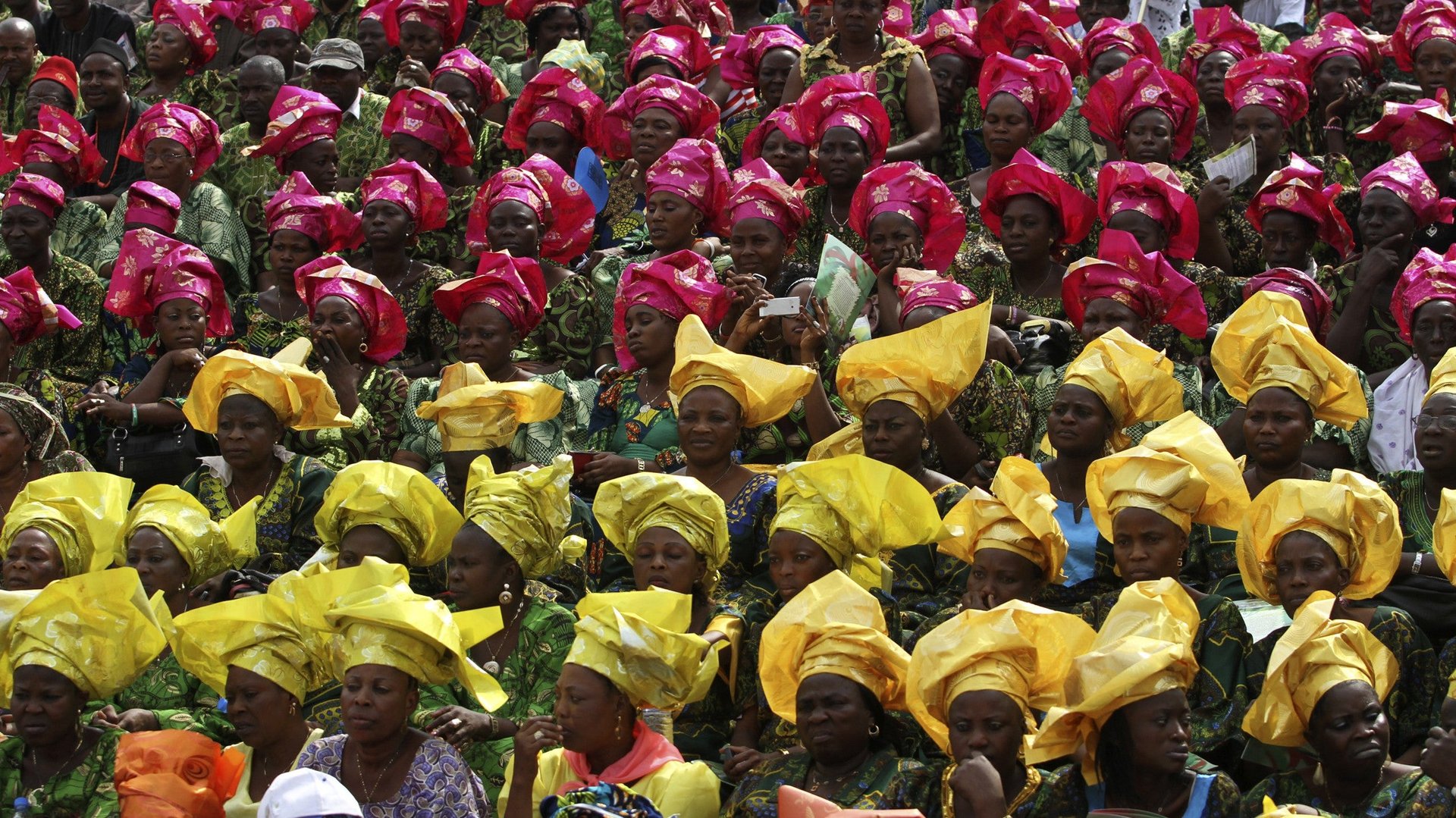How we make sure Nigeria’s gender equality bill passes next time
The failure of the Gender and Equal Opportunities Bill to get past the second reading in the Nigerian senate this week got me thinking about women’s rights activism, the formidable challenges ahead, and how we might begin to overcome them. There has rightly been much outrage in Nigeria and in the international community that the bill, proposed by one of the country’s few female senators, Abiodun Olujimi, was rejected on cultural and religious reasons.


The failure of the Gender and Equal Opportunities Bill to get past the second reading in the Nigerian senate this week got me thinking about women’s rights activism, the formidable challenges ahead, and how we might begin to overcome them. There has rightly been much outrage in Nigeria and in the international community that the bill, proposed by one of the country’s few female senators, Abiodun Olujimi, was rejected on cultural and religious reasons.
It was not a complete shock. When it comes to women’s rights issues in Nigeria there is an indifference from the predominantly male decision makers here. That’s why it’s obvious to me that the mobilization around these issues needs to change.
I have worked as an advocate on women and youth issues for several years, and have always been struck by how much people work in silos. The personnel at women’s rights-focused groups tend to be older, and often without a mastery of how to drive home advocacy messages to the widest possible audience.
Women’s rights discourse is often grounded in feminism, which is great because it helps with international perspective, but it also creates a language that can be hard to translate in layperson terms. This often leads to a movement that find it is much easier to talk amongst themselves than to be inclusive in their approach. It also has a hard time bridging the communication gap with feminist-minded young women.
Also along these lines, just like other organizations with formal structures that are accountable to donors, women’s rights-focused organizations are usually not very flexible: they often care too much about “owning” the message to truly allow someone else to take the lead in their own community.
This failure to mobilize effectively clearly hurt the chances of the Gender and Equal Opportunities Bill. The bill was first introduced by Sen. Chris Anyanwu in 2010. It was even mentioned in the 2012 Gender in Nigeria report. This version of the bill had its first reading last October. But the first time most people ever heard of the bill was on the day the second reading failed, which is a huge missed opportunity. This is especially so because International Women’s Day—with the global theme of gender parity—was a week before the second reading.
There was no evident work to highlight advocacy around the bill around International Women’s Day activities offline or online. I searched, and saw nothing of Sen. Olujimi’s work to sensitize Nigerians about the bill before the vote, or reach out to other women’s rights advocates.
Shame is handy when dealing with Nigerian lawmakers, and the senator—one of only eight women in the 109-member senate—made no attempt to shame her male colleagues by putting the spotlight on them. With little traditional or social media fanfare, there was really no pressure on these senators to pass this bill.
This bill is not without its obvious sticking points, however. Sections on abortion rights and gender-based affirmative action for school admissions will generate a lot of conversation, and it can be debated whether we need to create another commission to oversee women’s rights as the bill requires. It is also worth questioning if a Senate where casual misogyny is possible even on International Women’s Day could ever pass such a bill. But even with these questions, the work to mobilize must be done regardless, because the bill addresses such important issues as: protection of rights for widows, ensuring that women are allowed to inherit property, asserting women’s rights in the workplace, and unequivocally affirming a woman’s protection from discrimination. These are all very important for our country to codify in its laws and enforce.
The Nigerian constitution does assure equal treatment of all Nigerians, but this bill goes into detail by naming these various inequalities and addresses them one by one. We can debate the wisdom of attempting to pass all this in one bill, but denying it further consideration shuts the door to the possible passage of these important protections.
Without a change of tack, this bill will continue to gather dust, and such change will have to be a more inclusive approach than what women’s rights issues advocates are used to. The usual advocacy with lawmakers typically involves advocacy visits and letter writing. One cannot entirely rule those out, but it is important to add more to the toolbox. A better way will be a more people-driven approach that uses media more effectively and educates the public on why this bill is important.
Younger feminists must also find ways to organize, even if they are not in formal organizations, to make an impact on issues that affect them. We must also be able to speak both the technical language of a women’s rights workshop and in layperson’s terms to educate ordinary Nigerians about what’s really at stake. This is the only way we can succeed. The stakes are too high for us not to.